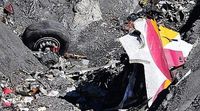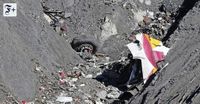On March 24, 2025, the tenth anniversary of the tragic Germanwings Flight 4U9525 crash is being observed, a calamity that resulted in the death of 149 people, including schoolchildren and teachers from Germany. The crash, which took place in 2015, raised significant questions about airline safety protocols, particularly concerning pilot mental health.
The co-pilot, Andreas Lubitz, was identified as the sole perpetrator of the crash. He intentionally locked the captain out of the cockpit and plunged the aircraft into the French Alps, a calculated act stemming from his severe mental health struggles. Investigations revealed that Lubitz, who had a documented history of depression, visited over 40 doctors in the weeks preceding the tragedy, each unaware of his consultations with others. These visits resulted in numerous prescriptions for psychotropic medications, none of which he disclosed to his employer, as he feared the repercussions on his career.
Tragically, many victims were associated with the local community, including a group of tenth-grade students and their teachers returning to Germany from a school exchange program in Spain. The emotional ripples of the disaster echo throughout their families and the wider region, which remains marked by loss, disbelief, and sorrow.
The crash prompted a wide-ranging review of aviation regulations. After thorough investigations, the Düsseldorf public prosecutor's office determined that no individual was criminally liable, ruling out culpability against flight doctors, airlines, and aviation regulators.
In response to the disaster and to prevent similar occurrences, significant reforms were introduced across Europe. A flight medical database was created in 2016, aimed at preventing pilots from consulting multiple physicians to obtain fitness certificates while concealing medical conditions. Additionally, airlines, including Lufthansa, decided that pilots returning from illness must now provide new fitness certificates after three weeks away from work.
As safety measures continued to evolve, the European Aviation Safety Agency (EASA) mandated additional questions focusing on mental health during annual flight medical examinations. Since 2016, airlines have also been responsible for conducting random, suspicion-free drug and alcohol testing for all flight crews prior to taking off.
Additionally, after the tragedy, the 'AntiSkid' program was expanded to address mental health issues, reflecting a broader commitment to pilot well-being.
Ten years after the crash, Annika Sondenheimer, who lost her husband Patrick in the disaster, expressed that the anniversary of the event is not an overwhelmingly painful day for her family. They engage in various rituals to remember him during his birthday and Christmas but hold a different sentiment for the tragedy's anniversary, focusing on healing.
The release of diary entries belonging to Lubitz unearthed further insights into his troubled state of mind. He documented episodes of profound sadness, sleep disorders, and suicidal thoughts, which were overlooked by the reports leading up to the crash. These uncovered struggles paint a troubling portrait of a young man whose mental health deteriorated before executing a catastrophic decision that would affect countless lives.
Despite the formidable safety measures now in place, concerns remain. The lack of change in the legal framework preventing airlines from breaching doctor-patient confidentiality raises questions about whether more could be done to ensure the mental fitness of pilots. Lubitz had overtly researched suicide methods and harbored intense anxiety regarding his vision, which he believed impaired his ability to fly.
In retrospect, the psychological evaluations conducted before the accident have come under scrutiny for potentially inadequate assessments of Lubitz’s mental health. Experts continue to advocate for better practices that could improve pilot monitoring and regulation.
The complex narrative of the Germanwings crash serves as a reminder of the profound impact mental health can have within the aviation industry. As time goes on, the ongoing need for vigilance and support for pilots facing psychological challenges remains paramount.
From the tragedies of the past, there is a collective hope that the aviation industry can ensure such horrors never happen again, through comprehensive mental health assessments and proactive interventions.






